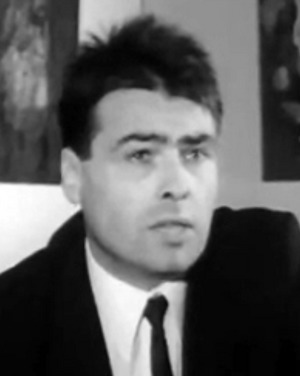Pierre Bourdieu facts for kids
Quick facts for kids
Pierre Bourdieu
|
|
|---|---|

Bourdieu in 1969
|
|
| Born |
Pierre Bourdieu
1 August 1930 |
| Died | 23 January 2002 (aged 71) |
| Alma mater | École normale supérieure, University of Paris |
| Era | 20th-century philosophy |
| Region | Western philosophy |
| School | Structuralism · Genetic structuralism · Critical sociology |
| Institutions | École pratique des hautes études (before 1975) · École des hautes études en sciences sociales (after 1975) · Collège de France |
|
Main interests
|
Sociology · Power |
|
Notable ideas
|
Cultural capital · Field · Habitus · Doxa · Social Illusion · Reflexivity · Social capital · Symbolic capital · Practice theory |
|
Influences
|
|
|
Influenced
|
|
Pierre-Félix Bourdieu (born August 1, 1930, died January 23, 2002) was a very famous French sociologist. A sociologist studies how people live together in groups and how societies work.
Bourdieu wrote many books and articles. One of his most famous books is Distinction: A Social Critique of the Judgment of Taste. This book was even called one of the most important sociology books of the 20th century!
He often wrote about how different social groups, especially those with power, keep their advantages over time. He explored how society might seem to offer equal chances to everyone, but sometimes it doesn't. He looked at how things like education can play a role in this.
Contents
Life and Education
Pierre Bourdieu was born in Denguin, a town in southern France. His father was a postal worker. In 1962, Bourdieu married Marie-Claire Brizard, and they had three sons.
Bourdieu went to school in Pau and then in Paris. He studied philosophy at a top school in Paris called the École Normale Supérieure. After finishing his studies, he worked as a teacher for a year.
In 1955, Bourdieu joined the French Army. He was sent to Algeria, which was a French territory at the time and was fighting for its independence. After his military service, he stayed in Algeria as a lecturer.
Research in Algeria
While in Algeria, Bourdieu started doing ethnographic research. This means he studied different cultures and groups of people by observing them closely. He focused on the Kabyle people, who are a group of Berbers.
His research led to his first book, The Sociology of Algeria, published in 1958. This book was very popular in France. He later used what he learned in Algeria for another important book called Outline of a Theory of Practice.
Bourdieu's Ideas
Bourdieu always tried to connect his ideas with real-world observations. He called his work a "Theory of Practice." He introduced several key ideas in sociology:
- Habitus: This refers to the habits, skills, and ways of thinking that people learn from their families and social groups. It shapes how they see the world and act in it.
- Capital: Bourdieu expanded the idea of "capital" beyond just money. He talked about:
- Social capital: The value of your social connections and networks.
- Cultural capital: The knowledge, skills, and cultural tastes you gain from your upbringing and education.
- Symbolic capital: The respect and recognition you get from others.
- Field: This is like a social arena or game where people compete for different types of capital. Examples include the field of education, art, or politics.
Bourdieu believed that each person has a unique place in society based on all the different kinds of capital they have. He showed how these different types of capital can help create or keep social differences.
Later Career and Recognition
In 1960, Bourdieu returned to the University of Paris. He then taught at the University of Lille. From 1964, he became a professor at the École Pratique des Hautes Études. Later, in 1981, he became a professor of sociology at the Collège de France, a very respected position.
In 1975, Bourdieu started an important journal called Actes de la recherche en sciences sociales. He wanted this journal to help make sociology more scientific and rigorous.
Bourdieu received many awards for his work. In 1993, he won the "Médaille d'or" from the CNRS, which is a top French science award. He also received awards from universities in the United States and the Royal Anthropological Institute.
Pierre Bourdieu passed away from cancer at the age of 71. His ideas continue to influence how we understand society today.
Bourdieu's Famous Books
Here are some of Pierre Bourdieu's well-known books:
- La distinction (1979)
- Homo Academicus (1984)
- La Noblesse d'État (1989)
- La Misère du monde (1993)
See also
 In Spanish: Pierre Bourdieu para niños
In Spanish: Pierre Bourdieu para niños
 | Georgia Louise Harris Brown |
 | Julian Abele |
 | Norma Merrick Sklarek |
 | William Sidney Pittman |

